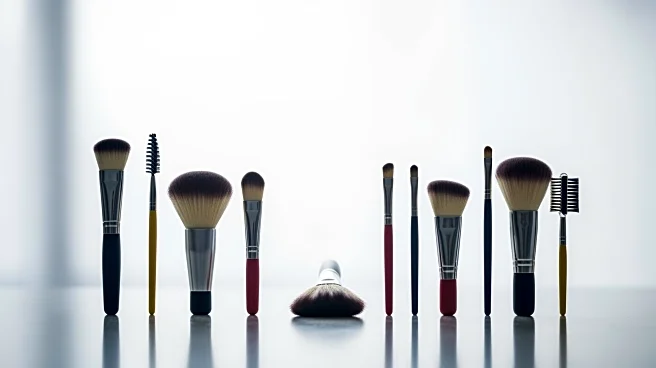What's Happening?
Target is experiencing significant challenges in its beauty and wellness division, marked by recent layoffs and a backlash from its diversity, equity, and inclusion (DEI) initiatives. The company announced
the reduction of 1,800 roles at its corporate headquarters, coinciding with a 30% drop in stock price over the past year and declining foot traffic. Target's partnership with Ulta Beauty has disintegrated, and its DEI stance has led to negative reactions from beauty brands that are typically progressive. Melissa Butler, founder of The Lip Bar, reported a 30% decline in sales at Target since January, highlighting the impact of these changes on brand partnerships.
Why It's Important?
The developments at Target are significant for the beauty industry, as they reflect broader challenges in retail and consumer engagement. Target's struggles with DEI initiatives and its partnership with Ulta Beauty could affect its ability to attract and retain beauty shoppers. The layoffs and management restructuring may hinder Target's capacity to innovate and respond to market demands, potentially impacting its competitiveness against rivals like Walmart and Amazon. Brands that rely on Target for distribution may need to reassess their strategies, affecting their sales and market presence.
What's Next?
Target must navigate these challenges by potentially redefining its beauty strategy and addressing the gaps left by the Ulta Beauty partnership. The company may need to focus on product innovation and consumer engagement to regain its footing in the beauty market. As Target works to stabilize its operations, it will be crucial to monitor how it adapts its DEI policies and manages its brand relationships to mitigate further backlash and restore consumer confidence.











